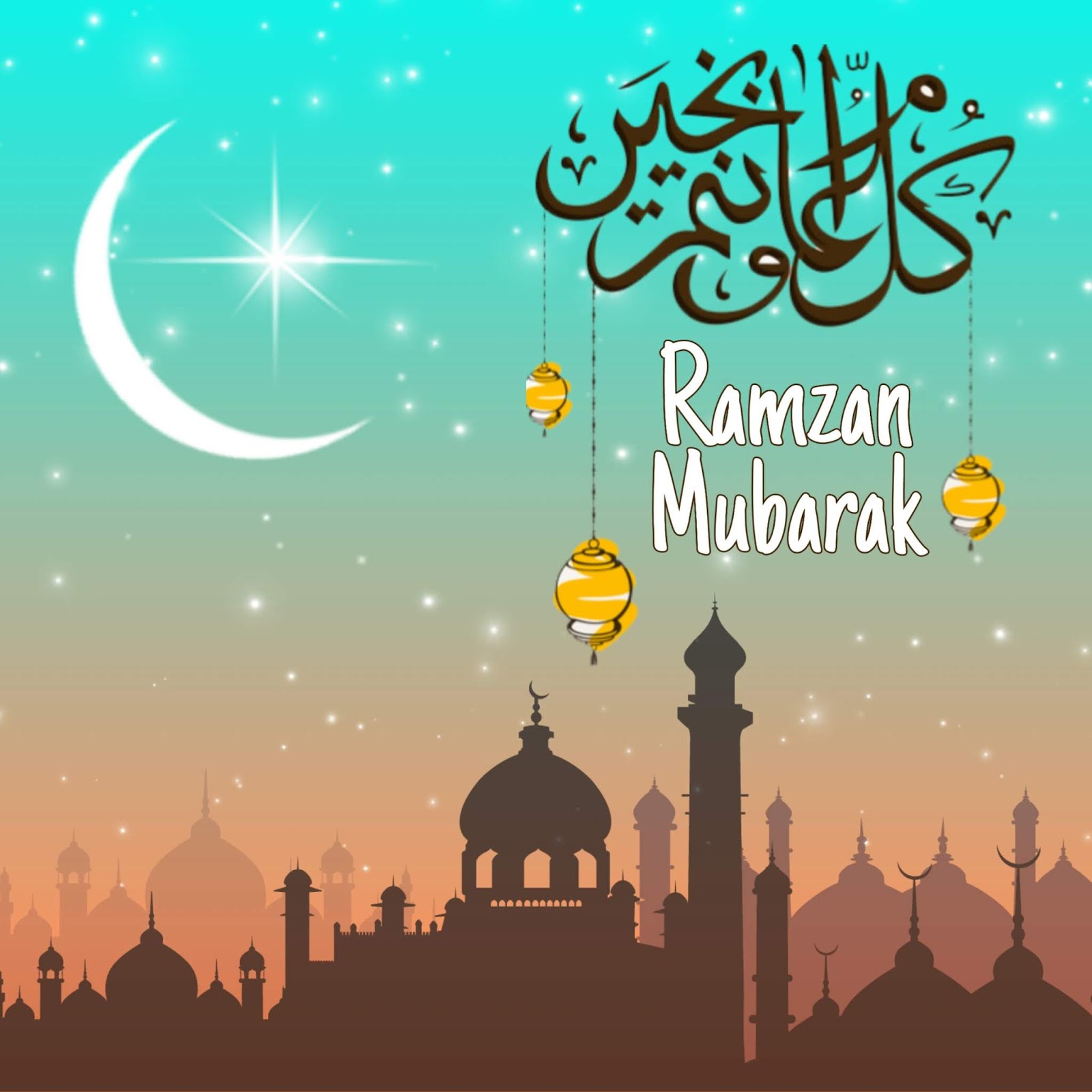As the holy month of Ramadan approaches, Muslims around the globe greet one another with phrases such as "Ramadan Mubarak" and "Ramadan Kareem." These expressions, deeply rooted in cultural and religious significance, embody the spirit of generosity and goodwill during this sacred time. Understanding the nuances between these two greetings can enrich our appreciation of Ramadan and enhance our interactions with others during this month of fasting and reflection.
Ramadan, the ninth month of the Islamic lunar calendar, is a time for Muslims to engage in fasting, prayer, reflection, and community. It commemorates the month in which the Quran was revealed to the Prophet Muhammad. The greetings "Ramadan Mubarak" and "Ramadan Kareem" are commonly exchanged among friends, family, and the wider community as a way to convey blessings and goodwill. However, many may wonder about the differences in meaning and usage of these phrases.
This article aims to delve into the meanings of "Ramadan Mubarak" and "Ramadan Kareem," exploring their origins, cultural significance, and the best ways to use these greetings appropriately. By gaining a deeper understanding of these expressions, we can foster a sense of unity and compassion during this holy month of Ramadan.
Table of Contents
- 1. What Does "Ramadan Mubarak" Mean?
- 2. The Significance of "Ramadan Kareem"
- 3. Cultural Context of Ramadan Greetings
- 4. Traditions Associated with Ramadan
- 5. Personal Reflections During Ramadan
- 6. Community Engagement in Ramadan
- 7. Celebrating Eid al-Fitr
- 8. Conclusion: Embracing the Spirit of Ramadan
1. What Does "Ramadan Mubarak" Mean?
"Ramadan Mubarak" translates to "Blessed Ramadan." This greeting is often used to wish others a blessed and fulfilling Ramadan. The term "Mubarak" is derived from Arabic, meaning "blessed" or "happy," and it conveys a heartfelt sentiment of goodwill. During Ramadan, Muslims engage in fasting from dawn until sunset, pray regularly, and strive for spiritual growth. Wishing someone "Ramadan Mubarak" serves as a reminder of the blessings and mercy associated with this holy month.
2. The Significance of "Ramadan Kareem"
"Ramadan Kareem," on the other hand, translates to "Generous Ramadan." This expression emphasizes the spirit of generosity and giving that characterizes the month of Ramadan. The term "Kareem" means "generous" or "noble" in Arabic, highlighting the importance of charity and compassion during this time. It encourages individuals to be more charitable and to share their blessings with those in need, reinforcing the values of empathy and community.
3. Cultural Context of Ramadan Greetings
The use of "Ramadan Mubarak" and "Ramadan Kareem" can vary across different cultures and regions. While both greetings are widely accepted, some communities may prefer one over the other. Here are some insights into the cultural context:
- In many Arab countries, "Ramadan Kareem" is a common greeting, reflecting the cultural emphasis on generosity.
- In South Asian countries, "Ramadan Mubarak" is more frequently used as a way to wish blessings upon others.
- In multicultural societies, both phrases are often used interchangeably, depending on personal preference.
4. Traditions Associated with Ramadan
Ramadan is rich with traditions that enhance the spiritual experience for Muslims. These traditions often accompany the greetings exchanged during the month. Some popular traditions include:
- Fasting: Muslims fast from dawn to sunset, refraining from food and drink to purify the soul.
- Taraweeh Prayers: Special nightly prayers held at mosques during Ramadan, promoting community worship.
- Iftar: The meal that breaks the fast at sunset, often shared with family and friends.
- Charity (Zakat): Many Muslims give to charity during Ramadan, aligning with the spirit of generosity emphasized in "Ramadan Kareem."
5. Personal Reflections During Ramadan
Ramadan is not just a time for physical fasting; it also provides an opportunity for personal reflection and spiritual growth. Individuals often take time to:
- Engage in self-reflection and assess their spiritual journey.
- Set personal goals for the month, such as improving character and increasing acts of kindness.
- Strengthen their relationship with God through prayer and Quranic recitation.
6. Community Engagement in Ramadan
Ramadan fosters a sense of community among Muslims. Engaging with others during this time can include:
- Participating in community iftars, where individuals come together to break their fast.
- Volunteering at local charities and food banks to support those in need.
- Inviting friends and family to share in the blessings of Ramadan through communal prayers and gatherings.
7. Celebrating Eid al-Fitr
The conclusion of Ramadan is marked by the celebration of Eid al-Fitr, a festive occasion that signifies the end of fasting. This day is filled with joy, gratitude, and community. Key aspects of Eid al-Fitr include:
- Special Prayers: Muslims gather for a communal prayer service, often held in large open areas.
- Feasting: Families and friends come together to enjoy meals, often featuring traditional dishes.
- Giving Zakat al-Fitr: A charitable donation given to those in need, ensuring that everyone can partake in the festivities.
8. Conclusion: Embracing the Spirit of Ramadan
In conclusion, both "Ramadan Mubarak" and "Ramadan Kareem" encapsulate the essence of the holy month, each emphasizing different aspects of the Ramadan experience. By exchanging these greetings, we share blessings and foster a spirit of generosity and community. As we enter this sacred time, let us reflect on the significance of our actions, deepen our connections with others, and embrace the opportunity for spiritual growth.
We encourage readers to share their thoughts and experiences related to Ramadan in the comments below. Additionally, feel free to explore more articles on our site to learn about various aspects of this beautiful month.
Thank you for joining us in this exploration of Ramadan's meanings and traditions. We look forward to welcoming you back for more insightful content.
Austin Theory Face: The Unraveling Of A Wrestling Phenomenon
Who Is Fisher Stevens Married To? A Deep Dive Into His Personal Life
Exploring Violet Chachki's Ethnicity: A Deep Dive Into Her Heritage


